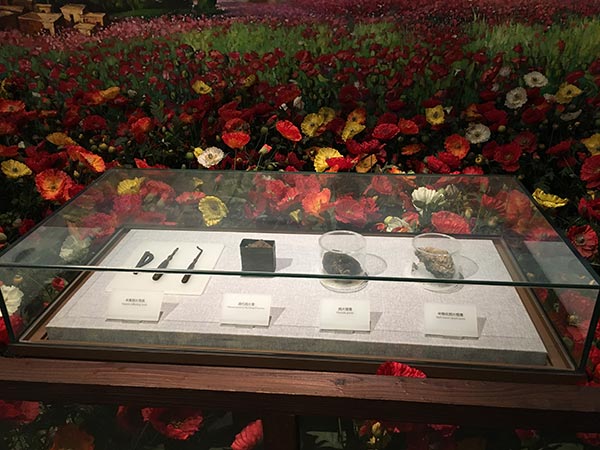 |
|
The exhibits at the Opium War Museum in Humen include "opium paste" that fueled mass addiction in China in the early 19th century. [Photo by Satarupa Bhattacharjya/China Daily] |
The Qing government was ineffective in controlling the spread of opium in China, partly due to corruption. The British East India Company processed the drug in colonial India and the company's agents smuggled it through Canton to Chinese dealers who then carried it to the rest of the mainland, including the royal court in Beijing, according to the Chinese historian Wu.
It was the responsibility of the local Qing officials to crack down on the smuggling in Canton, but it continued unabated as marine troops accepted bribes from foreign agents and let ships with hidden opium through, and when they were asked to increase patrolling by higher officials, the bribe amounts usually grew, he says.
"Growing corruption undermined the national strength, for the offspring of former gallant cavaliers were no longer enterprising, living pleasure-seeking lives instead," Jin had said in his earlier interview.
But it wasn't all inaction on part of the Qing government as one case of the large-scale destruction of opium in Humen indicates.
In 1839, Emperor Daoguang perceived a threat to his rule from opium after he received reports of mass addiction from different provinces of the country. He sent Lin Zexu (1785-1850), an official from Beijing to Canton as special commissioner, tasking him with the mission of clearing opium smuggling from the Pearl River, which flows into the South China Sea.
Soldiers surrounded the Thirteen Hongs (factories) area in Canton, where foreign traders lived, and seized the opium they found and burned it on the riverfront in neighboring Humen for days in June.
"Later that summer, Lin Zexu learned that the war of 1840 was coming," Wu says of what he thinks was a British response to the Qing resistance.
|
|
|
|
|
|
|
|
